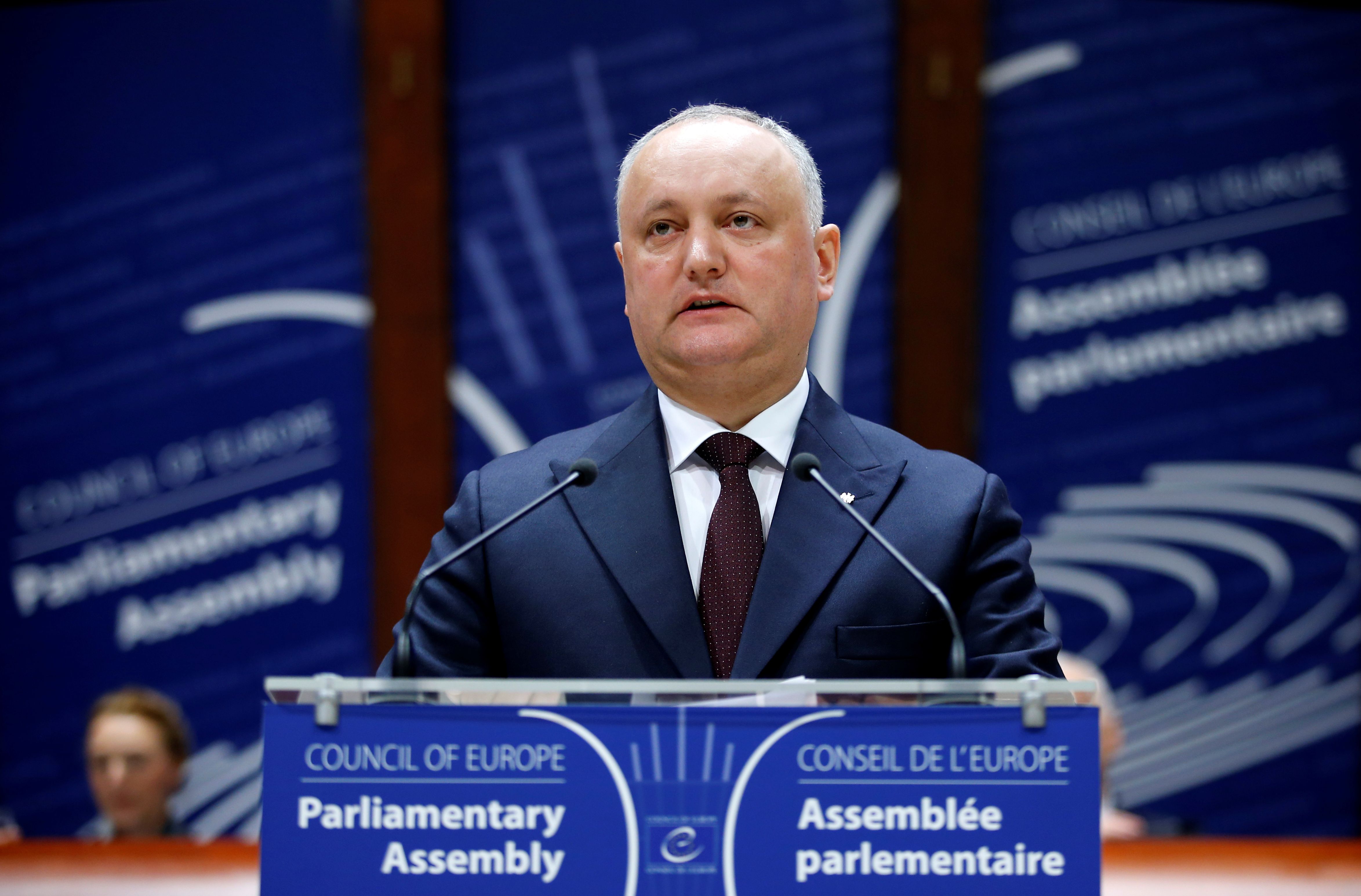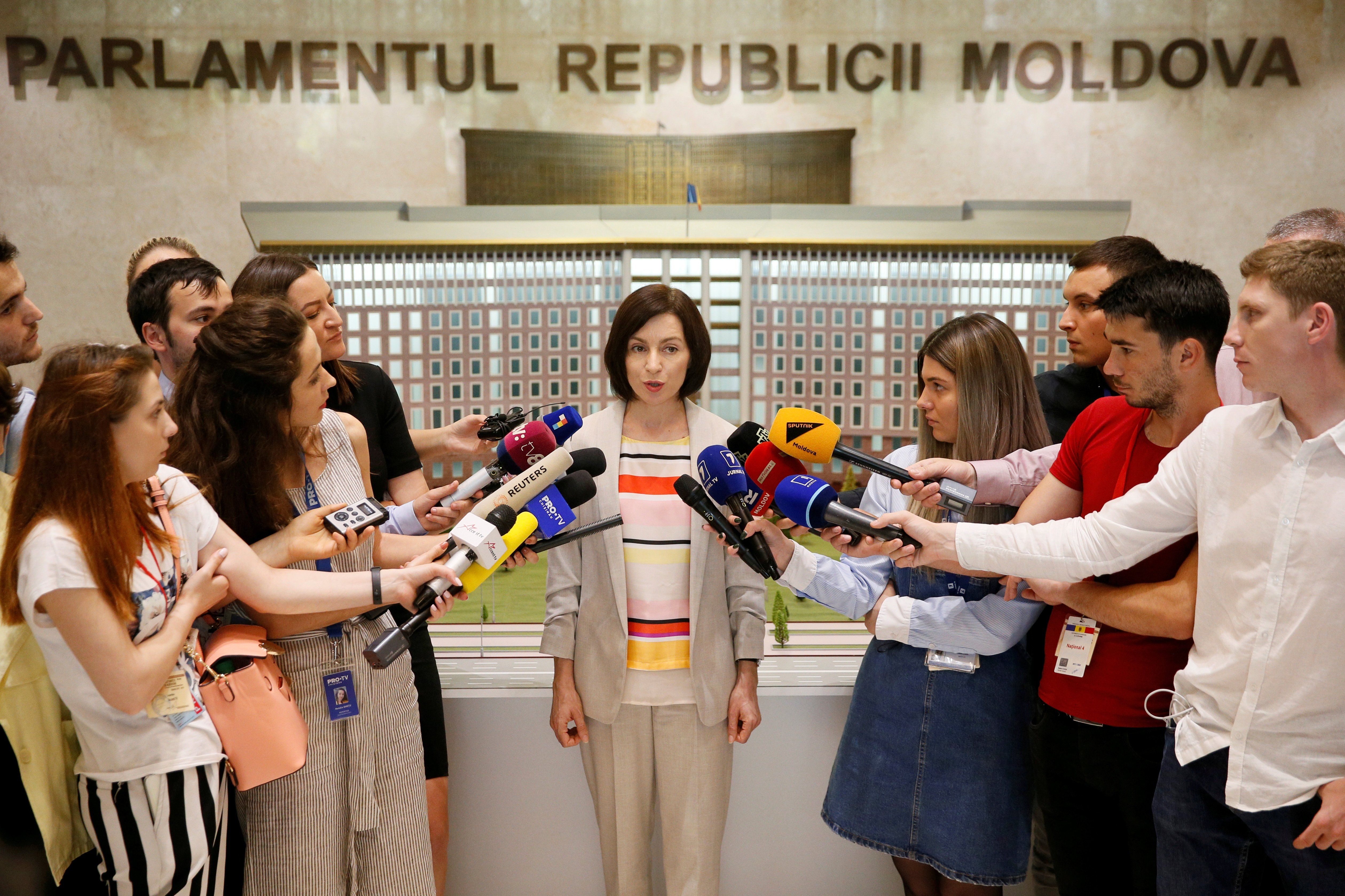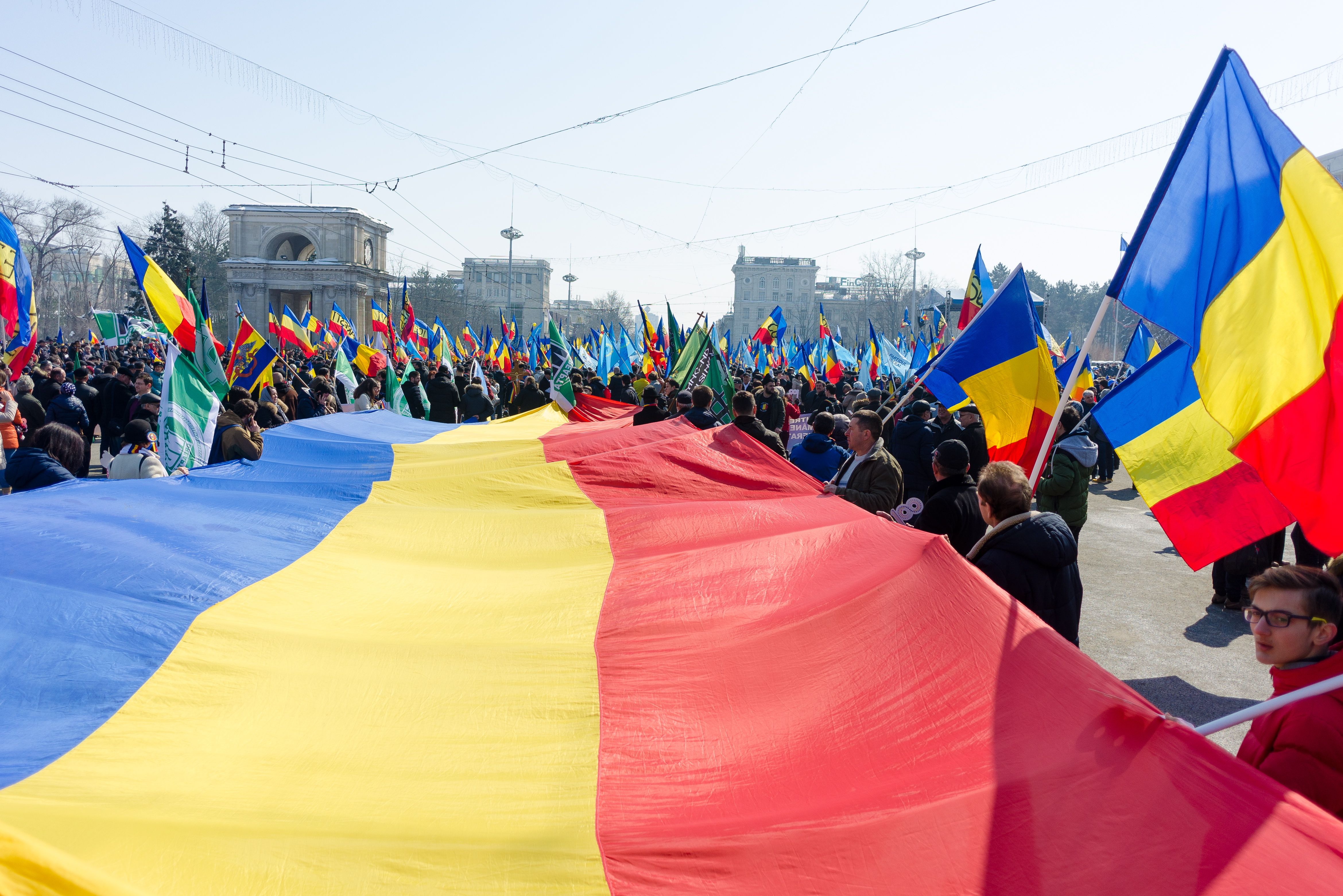Simulated Pro-EU Rules of the Socialists in Moldova

Moldova’s International Stance
Dodon, despite lacking the prerogatives to do so, actually heads Prime Minister Ion Chicu’s cabinet and the ruling Party of Socialists (PSRM). He opts for simultaneous cooperation with the European Union and the Eurasian Economic Union (EAEU). Dodon justifies this by the neutrality of Moldova as enshrined in the constitution, and the easing of social divisions. According to a poll carried out by the Barometrul Opini Publice in February 2019, 35% of Moldovan society wants EU membership, while 32% would prefer the EAEU. Dodon uses this policy to balance between foreign partners, and to expand his own electoral support ahead of the presidential election planned for autumn. This was demonstrated at the Munich Security Conference in February, when Dodon offered to mediate between Russia and the EU. This offer was not taken up.
The EU is Moldova’s main economic partner. In 2019, it was the destination for 65% of Moldovan exports and the source of 49% of imports, while trade with Russia accounted for 9% of exports and 12% of imports. But Dodon considers that maintaining his image as a close friend of Russia’s President Vladimir Putin to be important in securing the Russian leader’s support and his own hold on power. That is why more than 20 of his 60 foreign visits have been to Russia. He also justifies the Russian invasion of Ukraine, supports the presence of Russian troops in Transnistria, and offers economic licences to Russian companies, including the takeover of Moldavian airports and the Danube port.
In Need of EU Help
Despite his efforts, Dodon has not received significant economic support from Russia. It has neither reduced gas prices nor opened its own market to Moldovan workers or farm and food products. With the exception of wines from the traditionally pro-Russian autonomous Gagauzia, Moldovan foodstuffs are described as low quality by the Russian authorities. Just this April, however, the Moldovan ambassador to Moscow signed a loan agreement worth €200 million. It serves to strengthen Dodon’s image before the elections in autumn, although not Moldova’s economy, as the deal’s political and economic conditions are unfavourable. The agreement still requires ratification. In the case of deeper budgetary problems caused by the COVID-19 pandemic and falling oil prices, Russia may postpone the agreement’s implementation and, after the Moldovan elections, may completely withdraw from it. Moldova plans to obtain €1 billion of foreign aid by 2022. About 80% of this is expected from institutions related to Europe and the United States, such as the European Investment Bank, the European Bank for Reconstruction and Development, and the World Bank. However, the Chicu government, is afraid of losing €100 million macroeconomic assistance from the EU after Dodon and PSRM forced the collapse of Maia Sandu’s cabinet in November 2019. That government was supported by the U.S. and the EU institutions and countries, which since that time have avoided contacts with the Moldovan authorities. Moldova seeks to win back trust by assuring these institutions that it will implement reforms, but changes are limited to technical issues. That is why the EU and the U.S. criticise such reforms as simulated. This applies in particular to the lack of an independent prosecutor's office and the failure to handle the $1 billion banking sector fraud of 2014. In reply, Dodon accused some EU ambassadors (without indicating any by name) of deliberate misinformation about the situation in Moldova.
Hungarian Support
Hungary broke from the EU’s diplomatic ostracism of the Moldovan authorities. Foreign Minister Péter Szijjártó visited Moldova in February, and in March Chicu and Orbán signed a declaration on strategic partnership in Chişinău. Hungary committed to share its own experience in EU integration. Two Hungarian diplomats have been appointed as permanent advisors to Moldova during implementation of the EU association agreement with the and the treaty on a free trade area (DCFTA). At the same time, Orbán detached himself from EU policy, emphasising that he did not intend to assess the reforms of the Moldovan authorities. Instead, he found their desire to cooperate closely with the EU and Russia to be convergent with his vision for Hungary. Hungary also offered Moldova a credit line of $100 million for joint business projects. The details of cooperation are to be determined in May by a joint committee. However, even if it meets despite the COVID‑19 pandemic, this instrument is unlikely to significantly increase marginal trade; in 2019, Hungary received only 1.8% of Moldova’s exports and was the source of just 0.4% of imports.
The rapprochement between Moldova and Hungary serves primarily to put pressure on Romania. Visits by Szijjártó and Orbán to Chişinău coincided with the announcement in January by Romanian President Klaus Iohannis that his country would suspend assistance to Moldova and rejected a Hungarian proposal to build a bloc of Central European states in opposition not only to Russia but also to Western Europe. Romania’s fears may be justified by the fact that it recognises Moldova as the second Romanian national state and wants to be its main advocate in the EU. However, a cause of constant irritation in Romania’s relations with Hungary is the cultivation of memory about countrymen and lands lost in the Treaty of Trianon of 1920. Questioning the validity of the provisions of this treaty, or demanding autonomy for the region inhabited by Szeklers, is seen in Romania as a revival of Hungarian revisionism.
Establishment of a Coalition Government
One of Dodon’s attempts to strengthen his position was to share responsibility for government. He created an official coalition around the Chicu cabinet in Moldova’s 101-seat parliament. On 16 March, PSRM, which has 35 MPs, concluded a coalition agreement with the Democratic Party (PDM), which has 22. However, this is not a qualitative change, because these groups have been in an informal coalition since they together forced the collapse of the Sandu government. PDM is a former party of oligarch Vlad Plahotiuc, who ruled Moldova until June 2019, when he was forced to flee the country before Sandu’s cabinet took power for several months.
The establishment of the coalition with officially pro-European PDM is also intended to help Dodon and the Chicu government to break EU isolation. However, this is merely a gesture, calculated to confuse partners and blur PSRM’s responsibility for the lack of reforms. Therefore, among the five ministries taken over by PDM is the Ministry of Foreign Affairs and European Integration, entrusted to Oleg Ţuleia, who has no experience. Above all, PDM is a typical ruling party that wants to regain influence. During its rule, it only mocked pro-European reforms, thus compromising the European idea in the society.
Conclusions
The prospect of losing EU financial support and the limited Russian capacity to replace it forces Dodon and the Chicu government to simulate reform democratising the state and strengthening the rule of law. This will not be changed by the entry of the nominally pro-European PDM into government and its takeover of the Ministry of Foreign Affairs, as this party is interested in participating in the existing oligarchic system, not in its liquidation. This may result in the EU suspending macroeconomic assistance, as happened during Plahotniuc’s rule.
An economic crisis, which will probably hurt the EU after the COVID-19 pandemic, will force the bloc to save money. The cuts may affect especially the Eastern Partnership promoted by Poland, because some influential countries such as France or Italy are reluctant to support this programme. For them, the simulation of Moldovan reforms could be proof that the Partnership is ineffective. Meanwhile, Orbán and Szijjártó’s visits to Moldova strengthen its authorities’ assertiveness towards EU assessments and recommendations. Despite its declared support, Hungary will not contribute to accelerating pro-European transformations in Moldova and closer relations with the EU. The Orbán government, already in conflict with the EU institutions, is not able to push constructive proposals on its forum. In addition, the current rapprochement between Hungary and Moldova is intended mainly to strengthen the position of both countries on the question of Romania. This is similar to the policy pursued by Moldova’s anti-Romanian President Vladimir Voronin between 2002 and 2009. However, at that time the Hungarian authorities were indeed involved in Moldovan reforms, although they also treated the coordination of the EU visa centre in Chişinău as a prestigious triumph over Romania.





